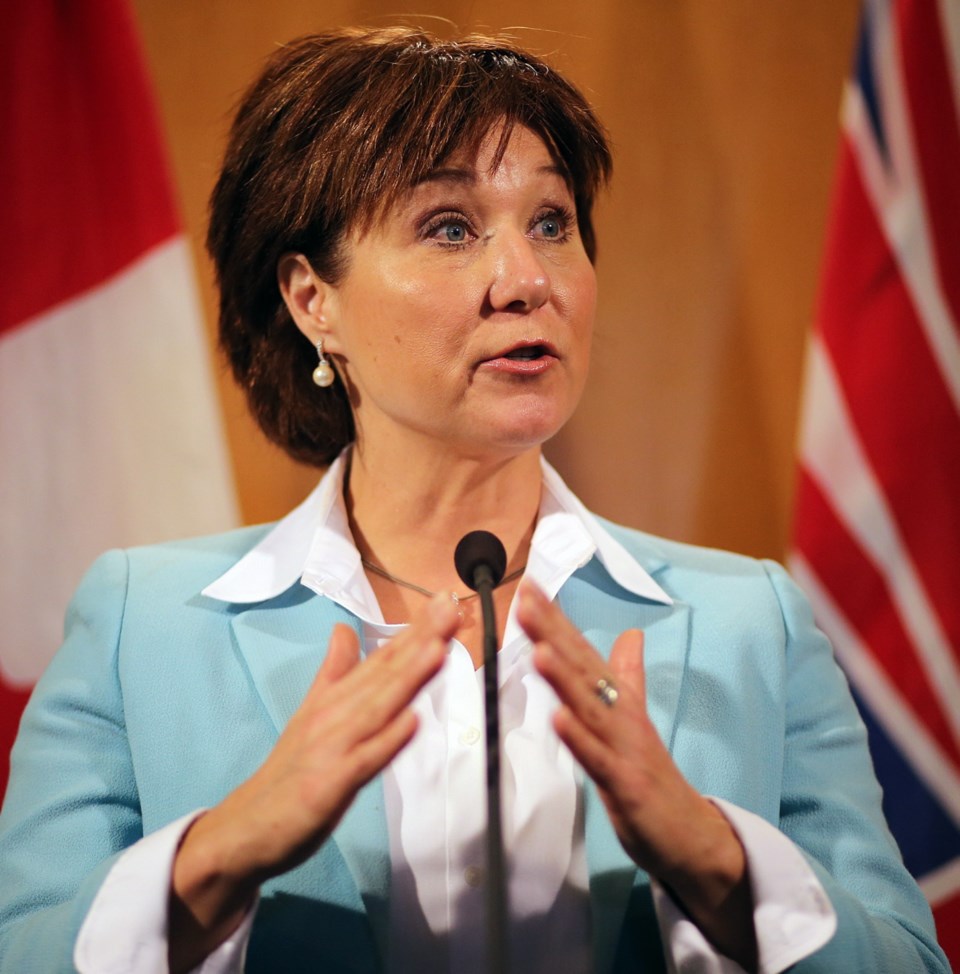Premier Christy Clark says that senior staff in her office never kept any records on a number of high-profile issues because they never did any original work on the files.
Clark said that’s why her deputy minister, John Dyble, kept no records on the firing of eight health researchers during a two-year period when the provincial government was under attack for its handling of the case.
She said that’s why the NDP came up empty when it asked for any emails that her chief of staff, Dan Doyle, sent or received in June, and for any emails or electronic messages that Clark’s communications director, Ben Chin, sent or received during a two-week period in March.
“Transitory records, which include unnecessary duplicates, are, under the [Freedom of Information] act, allowed to be disposed of, as they properly are,” Clark told the legislature on Wednesday.
“Individuals who originate documents should be keeping them and making sure that those are available for freedom of information.”
Clark said “many documents” related to the health firings have been turned over to ombudsperson Jay Chalke and will be released publicly once his review of the case is complete.
“So it’s certainly not true for the member or other members [of the legislature] to suggest that there are no documents,” she said.
NDP Leader John Horgan mocked the idea that none of the senior officials in Clark’s office are apparently doing any original work, and therefore have no records worth keeping.
“I know the people of British Columbia will take enormous comfort — enormous comfort — to know that not a single person making six figures working in the premier’s office ever creates a single idea,” he said.
“It all comes full-blown out of her forehead. That’s extraordinary. Zeus has arrived here in the legislature, and we don’t write a darned thing down.”
Horgan called it “implausible” that Dyble, who oversees the public service, never created a single document on the health firings from 2012 to 2014 — the time frame covered by the NDP’s records request.
Horgan also questioned how Chin could have no messages from March when Clark’s government was busy firing municipal auditor Basia Ruta and bypassing former Liberal cabinet minister George Abbott as head of the B.C. Treaty Commission.
“If the premier’s director of communications doesn’t write anything down — he doesn’t send any emails — how is it that he communicates her inexplicable vision to the people of British Columbia?” Horgan asked.
Finally, Horgan pointed out that, in June, when Doyle apparently kept none of his emails, Clark was under fire for announcing, and then cancelling, a mass yoga session on the Burrard Street Bridge in Vancouver.
“I recall reading a good deal of comment on that in the public press,” Horgan said.
“I would have thought that the chief political fixer in the premier’s office would have maybe dispatched an email or two to some subordinate saying: ‘We should fix this.’ But apparently not.”
The NDP said the failure of senior people in Clark’s office to keep records is further evidence of an “oral government” that tries to hide its decision- and policy-making processes from the public.
Privacy commissioner Elizabeth Denham warned last week that the Clark government’s cavalier approach to record-keeping threatens the integrity of freedom of information in B.C.
Her report, Access Denied, uncovered evidence of Clark’s political staff routinely violating the law by destroying records, conducting negligent searches for records, failing to keep proper records or dragging its feet on the release of records.
In response, Clark ordered her staff to stop deleting emails and hired former privacy commissioner David Loukidelis to help the government respond to Denham’s report.



